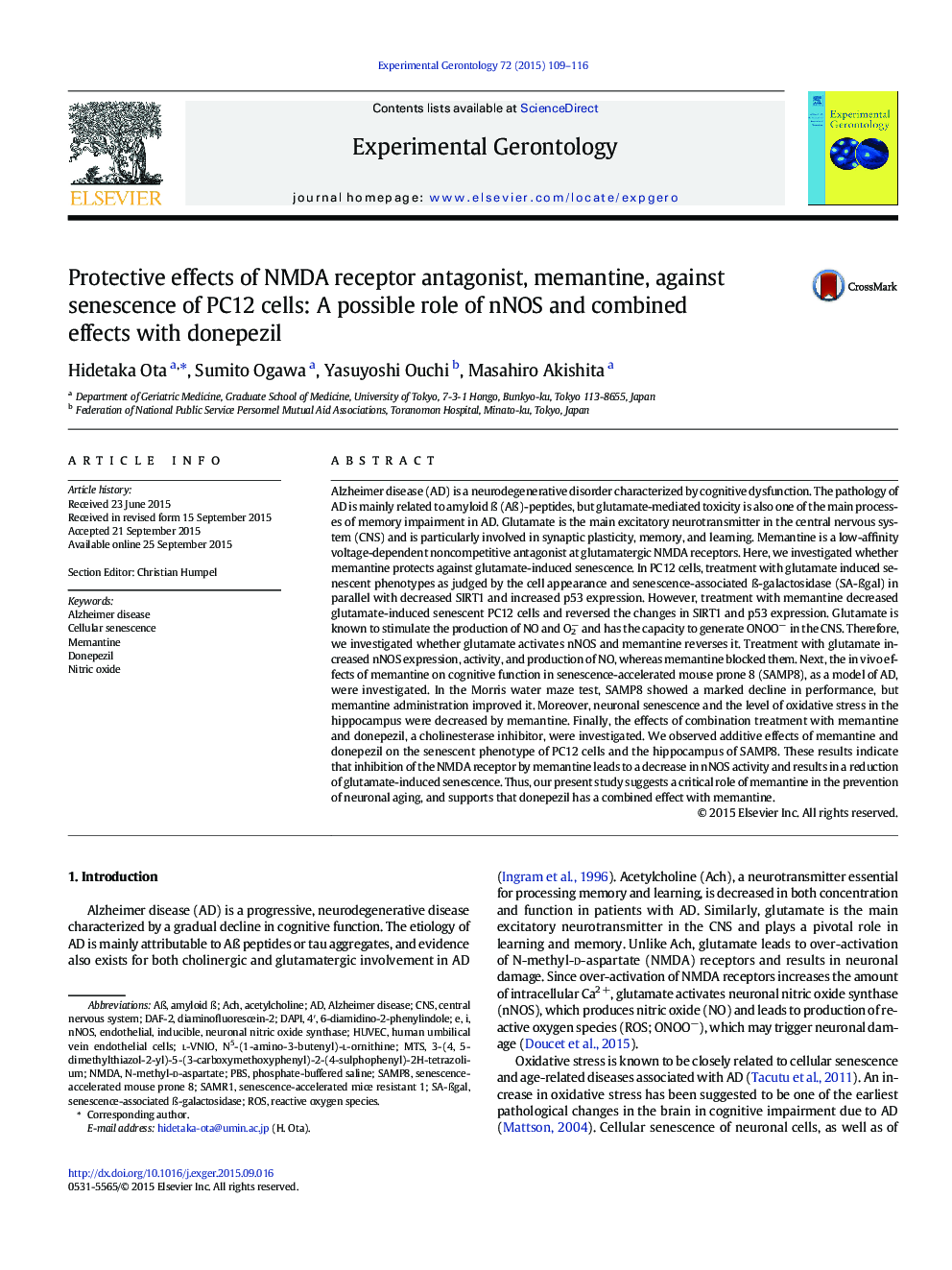| Article ID | Journal | Published Year | Pages | File Type |
|---|---|---|---|---|
| 8263009 | Experimental Gerontology | 2015 | 8 Pages |
Abstract
Alzheimer disease (AD) is a neurodegenerative disorder characterized by cognitive dysfunction. The pathology of AD is mainly related to amyloid à (AÃ)-peptides, but glutamate-mediated toxicity is also one of the main processes of memory impairment in AD. Glutamate is the main excitatory neurotransmitter in the central nervous system (CNS) and is particularly involved in synaptic plasticity, memory, and learning. Memantine is a low-affinity voltage-dependent noncompetitive antagonist at glutamatergic NMDA receptors. Here, we investigated whether memantine protects against glutamate-induced senescence. In PC12 cells, treatment with glutamate induced senescent phenotypes as judged by the cell appearance and senescence-associated Ã-galactosidase (SA-Ãgal) in parallel with decreased SIRT1 and increased p53 expression. However, treatment with memantine decreased glutamate-induced senescent PC12 cells and reversed the changes in SIRT1 and p53 expression. Glutamate is known to stimulate the production of NO and O2â and has the capacity to generate ONOOâ in the CNS. Therefore, we investigated whether glutamate activates nNOS and memantine reverses it. Treatment with glutamate increased nNOS expression, activity, and production of NO, whereas memantine blocked them. Next, the in vivo effects of memantine on cognitive function in senescence-accelerated mouse prone 8 (SAMP8), as a model of AD, were investigated. In the Morris water maze test, SAMP8 showed a marked decline in performance, but memantine administration improved it. Moreover, neuronal senescence and the level of oxidative stress in the hippocampus were decreased by memantine. Finally, the effects of combination treatment with memantine and donepezil, a cholinesterase inhibitor, were investigated. We observed additive effects of memantine and donepezil on the senescent phenotype of PC12 cells and the hippocampus of SAMP8. These results indicate that inhibition of the NMDA receptor by memantine leads to a decrease in nNOS activity and results in a reduction of glutamate-induced senescence. Thus, our present study suggests a critical role of memantine in the prevention of neuronal aging, and supports that donepezil has a combined effect with memantine.
Keywords
PBSdiaminofluorescein-2SAMR1DAF-2SAMP8N-methyl-d-aspartateNMDAMTSDAPIHUVEC4′, 6-diamidino-2-phenylindoleROSAChAcetylcholineAlzheimer diseaseCNSDonepezilHuman umbilical vein endothelial cellscentral nervous systemAsPhosphate-buffered salineMemantinesenescence-accelerated mouse prone 8Nitric oxideCellular senescenceReactive oxygen species
Related Topics
Life Sciences
Biochemistry, Genetics and Molecular Biology
Ageing
Authors
Hidetaka Ota, Sumito Ogawa, Yasuyoshi Ouchi, Masahiro Akishita,
